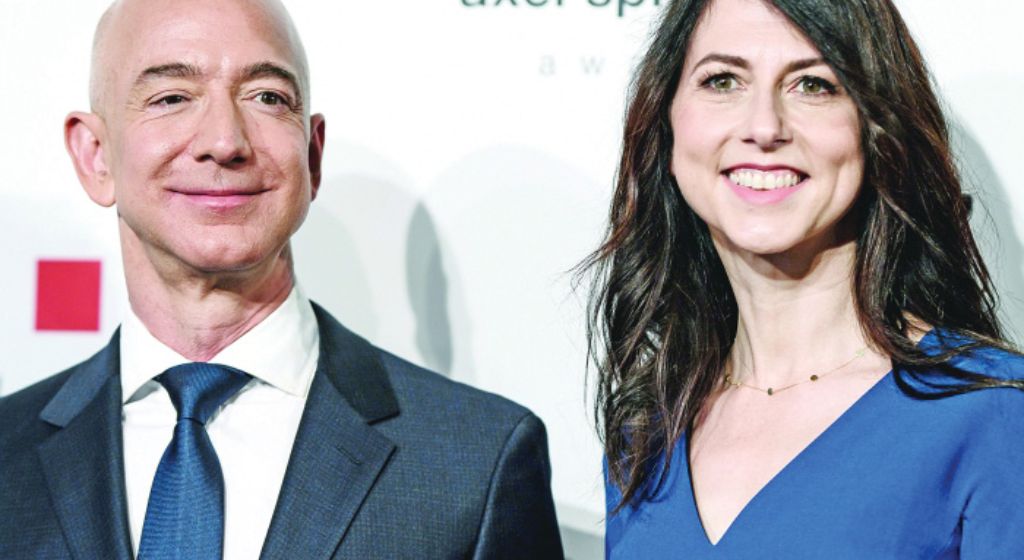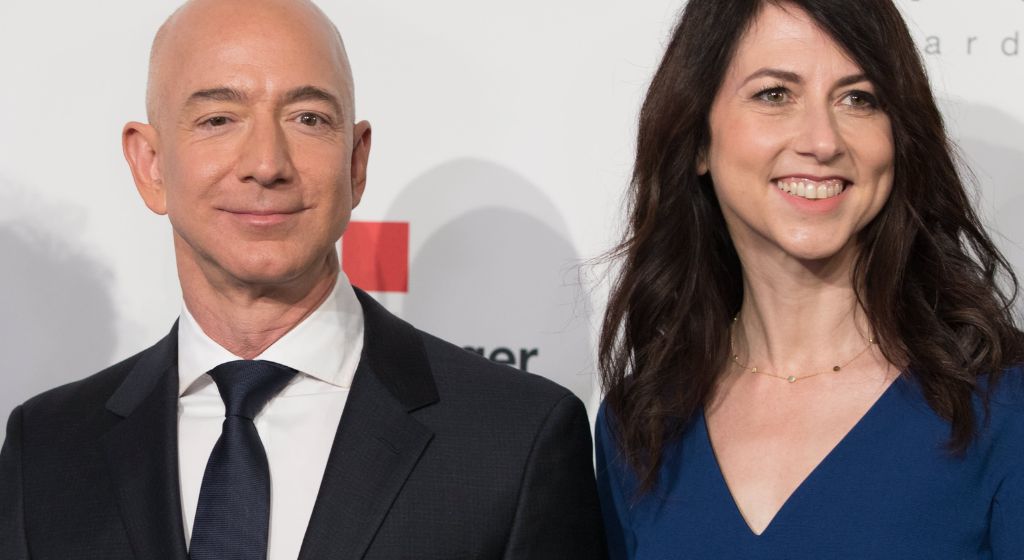Jeff and MacKenzie Bezos’ divorce was one of the most significant and financially impactful separations in history, with their vast fortune—estimated at $160 billion—setting an unprecedented record.
Their split attracted global attention, not only because of the sheer magnitude of their wealth but also due to the financial arrangements surrounding Amazon, the e-commerce giant that Jeff Bezos founded in 1994.
At the time of their divorce, Jeff and MacKenzie jointly owned 16% of Amazon’s stock, making them some of the wealthiest individuals in the world. Despite their high-profile split, the ex-couple handled the separation amicably, avoiding the public battles that often come with high-net-worth divorces.
MacKenzie Bezos, a talented author with two published novels, played a crucial role in Amazon’s early days, helping Jeff build what would become a global empire.
However, as part of their divorce settlement, Jeff Bezos retained 75% of the couple’s Amazon stock, along with full voting control, ensuring that Amazon’s leadership and direction remained under his control.
Meanwhile, MacKenzie received 25% of their Amazon shares, which at the time were valued at an astonishing $38 billion. This settlement instantly made her one of the richest women in the world, ranking 22nd on Bloomberg’s Billionaire Index and the third richest woman globally.
However, her divorce settlement wasn’t limited to Amazon shares. The couple’s other assets, including real estate holdings and liquid cash, were not publicly disclosed. While Jeff Bezos retained full ownership of The Washington Post and space exploration company Blue Origin, it remains unclear what other financial assets MacKenzie received.
The Role of Community Property Laws in the Divorce
The Bezos divorce was settled in King County, Washington, which played a significant role in determining the division of their assets. Washington State is a community property state, meaning that assets and debts acquired during a marriage are generally divided equally between spouses upon divorce. However, in this case, the division of assets wasn’t an exact 50/50 split, as Jeff Bezos retained a greater share of their Amazon stock.
There are nine community property states in the U.S., including Arizona, California, Idaho, Louisiana, Nevada, New Mexico, Texas, Washington, and Wisconsin.
These laws generally dictate that all wealth acquired during a marriage—regardless of which spouse earned it—is considered joint marital property. In the absence of a prenuptial or postnuptial agreement, both partners are typically entitled to half of the wealth accumulated during the marriage.
Given that Jeff and MacKenzie married in 1993, before Amazon was founded in 1994, all wealth generated from Amazon’s success would have been considered joint marital property under Washington’s community property laws. This raised a key question: why didn’t MacKenzie receive half of the couple’s total wealth, which would have amounted to nearly $80 billion instead of $38 billion?

The Impact of Prenuptial and Postnuptial Agreements
When Jeff and MacKenzie Bezos married in 1993, they did not sign a prenuptial agreement. At the time, Jeff Bezos was not yet the billionaire he would become, and Amazon was still an idea rather than a reality. Given their financial situation at the time, it’s understandable why a prenup wasn’t part of their marriage arrangements.
However, what remains unclear is whether they later signed a postnuptial agreement after Amazon’s explosive growth. According to Las Vegas divorce attorney Jennifer Abrams, high-net-worth individuals often sign postnuptial agreements to clarify how assets would be divided in the event of a divorce.
Before Amazon went public, many private investment firms contributed heavily to the company. In cases like this, investors often encourage postnuptial agreements to prevent any future financial disputes that could create instability for the business. If such an agreement was in place, it might explain why MacKenzie did not receive half of Jeff Bezos’ wealth.
However, the final terms of their divorce settlement remain private, and there has been no official confirmation of a postnuptial agreement.
A Surprisingly Amicable Divorce
Despite the vast sums of money at stake, Jeff and MacKenzie Bezos handled their divorce with grace and mutual respect. They resolved their financial and custodial arrangements in just six months, an impressive feat considering the complexity of their assets.
Jennifer Abrams noted that their quick settlement and cooperative approach suggested that both parties were still in sync on key issues. Given their four children, they prioritized maintaining a positive co-parenting relationship and avoided a drawn-out legal battle.
Both Jeff and MacKenzie publicly praised each other after the divorce, emphasizing their continued friendship and commitment to co-parenting.
Jeff Bezos took to Twitter, writing:
“I’m grateful for her support and for her kindness in this process and am very much looking forward to our new relationship as friends and co-parents.”
MacKenzie Bezos echoed similar sentiments, tweeting:
“Grateful to have finished the process of dissolving my marriage with Jeff with support from each other and everyone who reached out to us in kindness, and looking forward to the next phase as co-parents and friends.”
Their cordial separation stood in stark contrast to many high-profile divorces, which are often riddled with legal battles, public disputes, and contentious settlements.
MacKenzie Bezos’ Philanthropic Path Post-Divorce
While MacKenzie Bezos received a smaller share of the couple’s wealth than she was legally entitled to, she quickly shifted her focus to philanthropy. Even before the divorce was finalized, she signed the Giving Pledge, a commitment by the world’s wealthiest individuals to donate at least half of their fortune to charity.
In a heartfelt letter, MacKenzie wrote:
“We each come by the gifts we have to offer by an infinite series of influences and lucky breaks we can never fully understand. In addition to whatever assets life has nurtured in me, I have a disproportionate amount of money to share. My approach to philanthropy will continue to be thoughtful. It will take time and effort and care. But I won’t wait. And I will keep at it until the safe is empty.”
Her dedication to philanthropy has set her apart from Jeff Bezos, who has yet to sign the Giving Pledge. However, Jeff publicly supported MacKenzie’s decision, tweeting:
“MacKenzie is going to be amazing and thoughtful and effective at philanthropy, and I’m proud of her.”
MacKenzie’s charitable giving has already made a significant impact, with billions of dollars donated to various organizations, focusing on education, racial equity, public health, and climate change.
MacKenzie Bezos’ divorce settlement granted her 25% of the couple’s Amazon stock, valued at $38 billion, instantly making her one of the wealthiest women in the world. However, she did not receive half of the marital assets, possibly due to a private postnuptial agreement or a mutual decision to avoid financial complications.
Beyond wealth, she gained financial independence, the ability to pursue philanthropy on her terms, and a positive co-parenting relationship with Jeff Bezos.
Ultimately, her post-divorce path reflects a strategic and purpose-driven approach—one that highlights not just financial gain, but also a commitment to using her wealth for the greater good.

